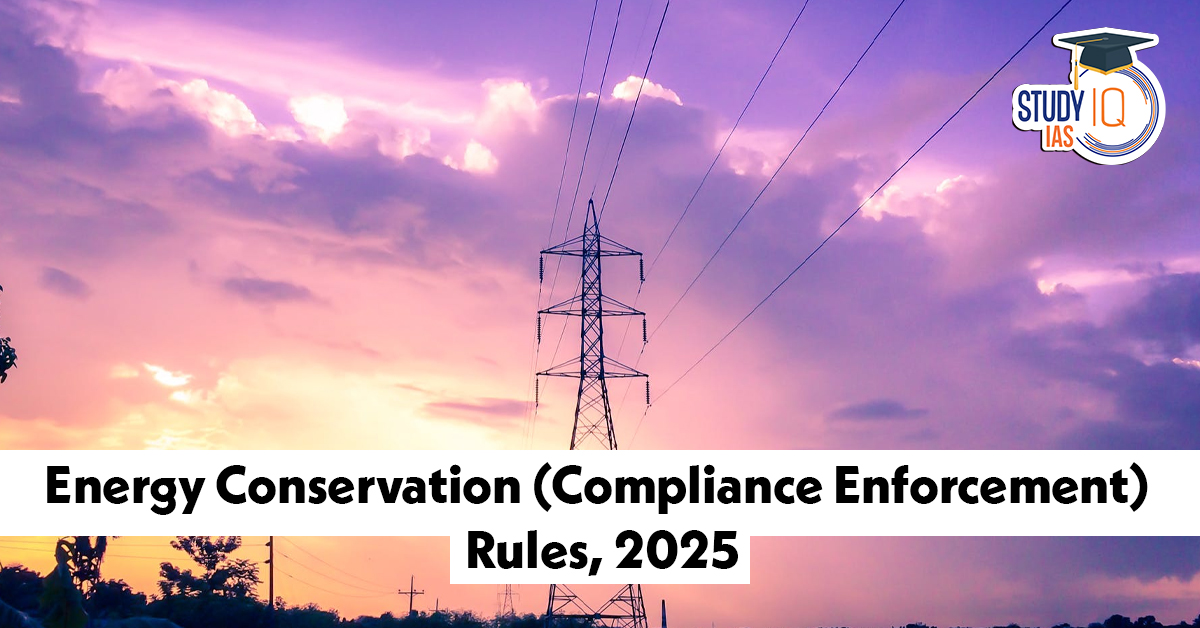Table of Contents
Context: The Power Ministry has released the draft Energy Conservation (Compliance Enforcement) Rules, 2025.
Key Provisions of Energy Conservation (Compliance Enforcement) Rules 2025
- Stronger Enforcement Powers for BEE: Bureau of Energy Efficiency (BEE) empowered to detect, verify, and assess violations.
- BEE can present non-compliance cases before Adjudicating Officers under State Electricity Regulatory Commissions (SERCs).
- Mandatory Compliance for Energy-Intensive Sectors: Industries like cement, steel, auto, and manufacturing must follow strict energy-saving norms.
- Applies to designated consumers, manufacturers, and importers under the Energy Conservation Act, 2001.
- From Voluntary to Enforced Efficiency:
- Earlier → companies mostly self-reported energy use.
- Now → compliance will be checked and enforced through inspections and audits.
- Penalties for Non-Compliance: Fines up to ₹10 lakh for violations.
- Penalty amounts are to be deposited in the Central Energy Conservation Fund, with a 90% share for States.
- Jurisdiction Clarification: SERCs to handle enforcement based on establishment location → ensures clear legal authority.
- Alignment with Climate Goals: Supports Perform, Achieve, and Trade (PAT) Scheme, Corporate Average Fuel Efficiency (CAFE) norms, and Energy Conservation Building Code (ECBC).
- Aligned with India’s Net Zero by 2070 and NDC targets under the Paris Agreement.
What is BEE? (Bureau of Energy Efficiency)
- Established under the Energy Conservation Act, 2001.
- Functions under the Ministry of Power, Government of India.
Mandate
- Promote energy efficiency and conservation across sectors.
- Develop energy efficiency standards and labelling (e.g., Star Rating of appliances).
- Administer schemes like PAT (Perform, Achieve, Trade), ECBC (Energy Conservation Building Code), and Standards & Labelling Program.


 World Wetlands Day 2026: Theme, History,...
World Wetlands Day 2026: Theme, History,...
 Geological Heritage Sites of India: Sign...
Geological Heritage Sites of India: Sign...
 Wildlife Sanctuaries of India 2026: List...
Wildlife Sanctuaries of India 2026: List...

























